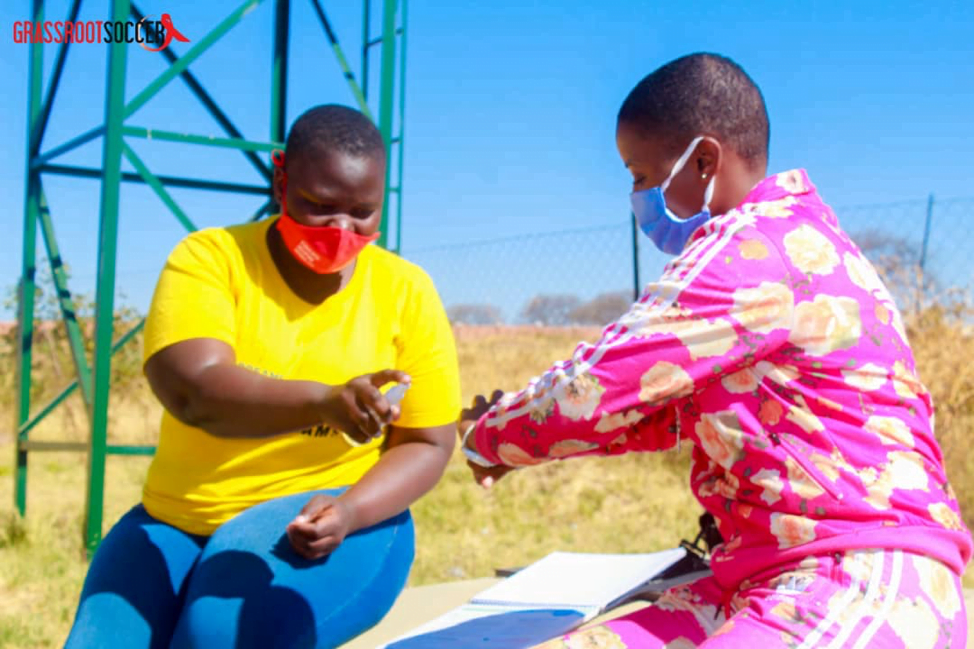YRHA Spotlight: Thubelihle Nkala

Editor’s note: The following first-person entry is part of a recurring series detailing the experiences of Grassroot Soccer (GRS) Youth Reproductive Health Assistants (YRHAs). A different YRHA will be highlighted in each post.
The YRHA model is a flexible and creative solution to address heightened barriers adolescents in Zimbabwe face when accessing Sexual and Reproductive Health and Rights (SRHR) services and information due to the COVID-19 pandemic. Through on-the-job mentorship, GRS is strengthening institutional capacity to create safe spaces to provide youth friendly services and openly discuss social norms and taboos around gender, sexuality, and SRHR.

I grew up [with] limited information on SRHR, especially how [I] could protect myself from early and unintended pregnancies. I always thought that a girl would not become pregnant just by having sex once a month. This ignorance led me into having an unplanned pregnancy, which caused me to drop out of school. This was the story of my life; I always shared with young people from my community hoping that they would not make the mistake that I had done.
I had the opportunity to train as a GRS Coach and later as a Youth Reproductive Health Assistant and I was able to share with a wider network of young people, parents, community leaders and other institutions. I am now able to bridge the gap of knowledge on SRH and prevention of early unintended pregnancies. I enjoy the discussions we have with my peers and I often share my story while encouraging them to access contraceptives and [wear condoms]. Lack of information has always driven us young people to make the ill-informed decision and I am glad that I am only a stone’s throw away from many young people and I can easily provide them with information and facilitate access to short-term contraceptives while escorting them for long-acting reversible contraceptives (LARC) at the nearest health facility. *
I am now a game-changer in my community [and] the youths are now able to access family planning methods without being judged.
*Editor’s note: Short-term contraceptive methods include birth control pills, condoms, contraceptive injections, a contraceptive patch, a contraceptive ring. a diaphragm, a cervical cap, a sponge, and spermicides. Long-acting reversible contraceptives include the intrauterine device (IUD) and the birth control implant.

